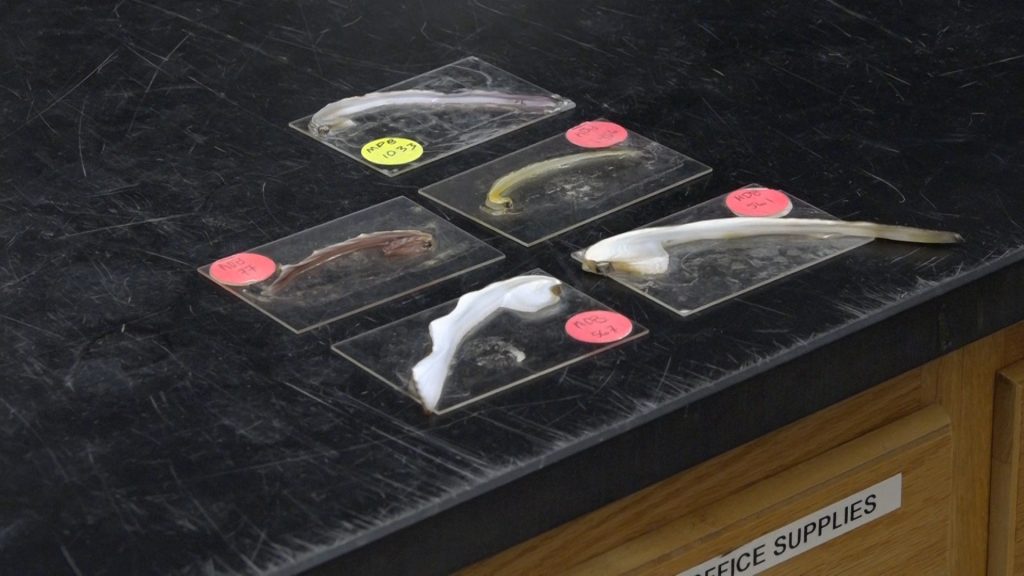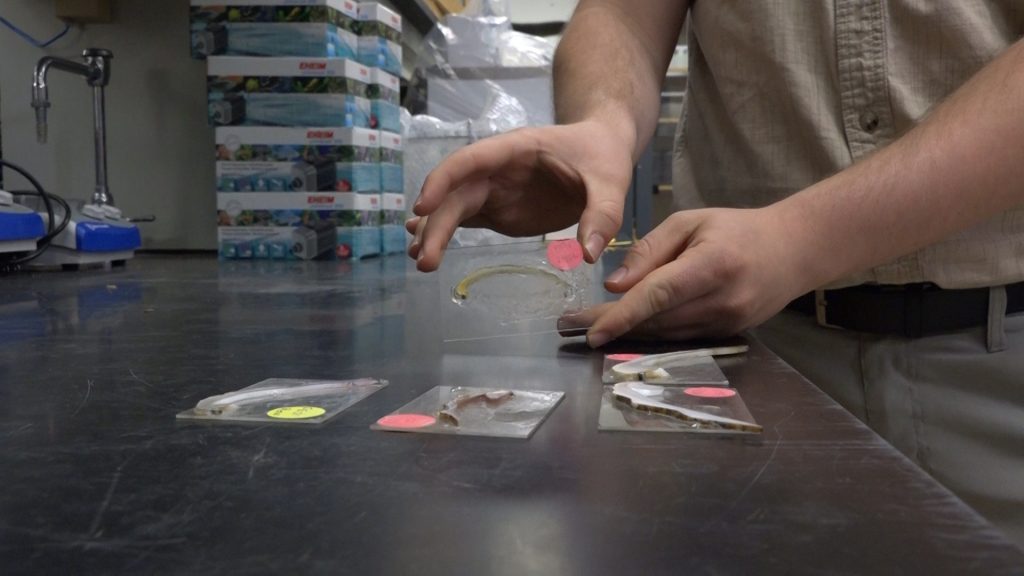Ian Brunetz, a student studying biology and English at The University of Alabama, was recently awarded the prestigious Barry Goldwater Scholarship, recognizing his outstanding research contributions to freshwater ecology and environmental science.

“Getting this scholarship allowed me the financial breathing room to take an additional semester, take a pause and allow me to finish up some more of my research,” Brunetz said.
The scholarship, one of the nation’s most competitive undergraduate awards in science and engineering fields, acknowledges Brunetz’s exceptional work in Dr. Carla Atkinson’s lab studying freshwater mussels and water quality.
“He’s a very self-motivated undergraduate, probably within the top 1% of undergraduates,” said Atkinson, associate professor in the UA Department of Biological Sciences. “He’s an absolute delight to work with.”
From Marine to Freshwater Research
Brunetz, originally from Tennessee, approached Atkinson as a freshman, demonstrating initiative that immediately impressed the veteran researcher. His scientific journey began even earlier, studying upside-down jellyfish at the Tennessee Aquarium during high school.
“Prior to work with freshwater mussels, I actually worked on a sea barium project for a few years with jellyfish,” Brunetz explained. “They’re fun because they’re a coastal species, so there’s a mix between freshwater and saltwater.”

This early experience with marine invertebrates provided a foundation for his current freshwater research, creating a comprehensive understanding of aquatic ecosystems across different environments.
“I came here for algae research and then kind of fell in love with freshwater mussels along the way,” Brunetz said.
Multidisciplinary Approach
Brunetz’s academic path combines biology with English and history, a strategic combination he believes strengthens his scientific work.
“I took English as a way to improve my science career, improve my biology major,” Brunetz said. “For the history, in general, I had many credits that I could use for the minor, and also it’s just enjoyable and good because freshwater mussels can be used for a technique known as sclerochronology.”
The technique uses growth patterns and stable isotopes in mussel shells to understand past environmental conditions, connecting his biological research with historical analysis.
“I could really tell from that initial contact that he was going to be an asset to the lab,” Atkinson said. “Throughout the years, he’s always impressed me. Very hardworking.”
Becoming a Science Communicator
Beyond his laboratory achievements, Brunetz has diversified his academic experience through involvement in the philosophy club and work as a science communicator with Alabama Public Television’s documentary series “Discovering Alabama.”
“’Discovering Alabama’ is a way to communicate all the incredible things that people are doing,” Brunetz said. “That is my way to become a better science communicator, which I think is a crucial skill.”
Brunetz credits UA’s supportive environment for his success, particularly mentioning the writing center and external scholarship committee as valuable resources. Atkinson and her team have provided crucial guidance throughout his undergraduate career.
First-authored Research Paper
During his time in Atkinson’s lab, Brunetz has participated in diverse research activities ranging from processing samples and sorting aquatic insects to conducting fieldwork on rivers. His most significant achievement came recently with the publication of his first-authored paper in the Journal of Freshwater Biology, examining growth rates in freshwater mussels.
[Photo: Holding-Slides-Muscles-Ian-Brunetz]

Brunetz’s research focuses on how human land use impacts mussel shells and soft tissue, with particular interest in using stable isotopes to track environmental conditions.
“Mussels are a filter feeder and they’re one of the defenses against eutrophication where you have algae take over,” Brunetz explained. “They can be a great response to that.”
His current work examines whether mussels incorporate materials from human-caused land use, such as agriculture and urban development, into their shells and tissues. Preliminary findings show promising correlations between nitrogen isotopes and land use patterns.
What’s Next
Ian’s upcoming plans include participating in study abroad research on coral reefs in Belize, followed immediately by fieldwork with Atkinson’s team in Alaska studying aquatic insects.
After completing his undergraduate studies, Brunetz plans to pursue a doctorate focused on ecotoxicology and freshwater ecosystems.
“He is well deserving, and I’m really proud of him,” Atkinson said. The Goldwater Scholarship represents the first such award for a student in Atkinson’s lab, highlighting both Brunetz’s exceptional abilities and the quality of research opportunities available to undergraduates at UA.
